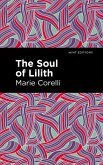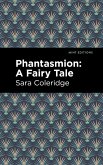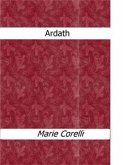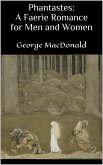In "Ardath," Marie Corelli weaves a rich tapestry of fantasy and romance, exploring themes of spiritual awakening, the nature of love, and the transcendent power of art. Set against an evocative backdrop of both ancient and contemporary landscapes, the novel follows the journey of its protagonist, who encounters a mystical realm that transforms her understanding of existence. Corelli's lyrical prose and vivid descriptions immerse readers in a world where dream and reality coalesce, reflecting the late Victorian fascination with metaphysics and the supernatural, while positioning its philosophical inquiries within the burgeoning discourse on women's independence and self-realization. Corelli, often hailed as a pioneer of popular fiction, drew upon her own experiences and spiritual interests to create a narrative marked by both personal depth and societal critique. Born to a modest background and experiencing the struggles of womanhood in a patriarchal society, Corelli's work often champions strong female leads who embark on journeys of self-discovery. Her own immersive explorations into the mystical arts and deep-seated beliefs in spiritualism are reflected in "Ardath," rendering it a manifestation of her personal ideologies and grand imagination. I highly recommend "Ardath" to readers interested in a thought-provoking exploration of fantasy intertwined with profound emotional resonance. Corelli'Äôs unique blend of romance and metaphysical inquiry not only captivates but prompts critical reflection on the nature of love and the universe, making it a compelling read for those drawn to literary works that challenge the boundaries of reality.
Dieser Download kann aus rechtlichen Gründen nur mit Rechnungsadresse in A, B, BG, CY, CZ, D, DK, EW, E, FIN, F, GR, H, IRL, I, LT, L, LR, M, NL, PL, P, R, S, SLO, SK ausgeliefert werden.









